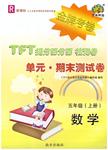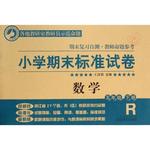题目内容
----__________ hard work you have done!
---- It’s very kind of you to say so.
|
A.What |
B.How |
C.What a |
D.How a |
A
【解析】本句考查的是感叹句,其结构为what +adj+n[u]+主谓!故选答案为A

 提分百分百检测卷单元期末测试卷系列答案
提分百分百检测卷单元期末测试卷系列答案 小学期末标准试卷系列答案
小学期末标准试卷系列答案| easy strong make watch worry |
【小题2】______ more money, he worked late at night.
【小题3】---How do you feel about endangered animals ?
---They make me ______.
【小题4】I ______believe that he will succeed because he’s worked so hard and made so much progress.
【小题5】---Do you like sports ?
---Yes, I’m looking forward to _______London 2012 Olympic Games.
Canada is a very large country. It is the second largest country in the world .By contrast it has a very small population. There are only about 29 million people there. Most Canadians are of British or French origin(后裔), and French is an official language of Canada as well as English .About 45%of the people are of British origin, that is, they or their parents or grandparents, etc, come from British. Nearly 30% are of French origin. Most of the French–Canadians live in province of Quebec.
Over the years, people have come to live in Canada from many countries in the world .They are from many countries in the world .They are from most European countries and also from China, besides other Asian countries.
However, Canada was not an empty country when the Europeans began to arrive. Canadian Indians lived along the coast, by the rivers and lakes and in forests. Today, there are only about 350,000 Indians in the whole country, with their own languages. In the far north live the Inuit. There are only 27,000 Canadian-Inuit. Their life is hard in such a difficult climate.
【小题1】The phrase “By contrast” in the passage means ____.
| A.同时 | B.相比之下 | C.而且 | D.实际上 |
| A.30% of the French –Canadians | B.45% of the Canadians |
| C.27,000 people | D.350,000 French – Canadians |
| A.English and Chinese | B.French and English |
| C.Indian and French | D.Chinese and Inuit |
| A.China |
| B.England |
| C.France |
| D.some other countries except France and Britain |
___________
There is a little story about an insurance(保险) salesman in Tokyo. Even though this man tried very hard to promote the insurance, nobody bought it. One day, he came to a small temple and began to brag about his insurance. After listening to his introduction, the monk said: “Your recommendation of insurance can’t arouse any of my interests! When you are communicating with others, you must have the charm to attract others, or you will be unpromising in the future. Young man, try to change yourself!”
The salesman thought deeply about each word. From then on, he invited all his friends to point out his weakness and kept on improving himself bit by bit for all his life. Thirty years later, he became a millionaire. And this man is the famous Yuan Yi Ping. His experience reflects one attitude: sometimes, we should change ourselves instead of changing the world.
【小题1】The salesman _________________________.
| A.is very lazy. |
| B.is not friendly to the people . |
| C.want to find another job. |
| D.became a famous salesperson in the world. |
| A.a man who has much money. |
| B.a man who is good at attracting others . |
| C.a boss in a big company. |
| D.a famous person in the world. |
| A.A story about a salesman |
| B.Communicate more with others |
| C.Attract others |
| D.Change yourself |
It’s impossible to get good _____ without hard work.
| A.grades | B.medals | C.checks | D.advertisements |
Japanese people work very hard at studying English. They start studying English at the age of 12. Most young Japanese people spend a lot of time and work hard at studying English, but Japanese people are not good at English. Here are the reasons:
There are few people from English-speaking countries in Japan. They don’t have enough chances to speak with them.
Japan is an island(岛)country and they feel that other countries are far away. So they don’t use English very often. And the Japanese feel that it is strange(奇怪的) to talk to each other in English.
The Japanese education doesn’t always follow the educational trends(趋势) in the world. It puts a lot of importance on grammar and vocabulary, and less on speaking, listening and reading skills.
Many Japanese students’ English becomes worse(更糟糕的) after they go to university(大学).They have to learn English again if they work in English-speaking countries.
Sometimes the Japanese feel shy about speaking wrong or broken English.
【小题1】Most young Japanese people English.
| A.are good at | B.work hard at | C.don’t like | D.spend little time on |
| A.Very good | B.Worse than before | C.Very bad | D.As good as before |
| A.the Japanese education needs to put a lot of importance on speaking |
| B.all the Japanese people hate English |
| C.Japanese people use English very often |
| D.the Japanese like to talk with others in English |
| A.The Japanese Like English |
| B.When Do the Japanese Being to Learn English |
| C.Why Are the Japanese Weak in English |
| D.How to Study English Well for the Japanese |